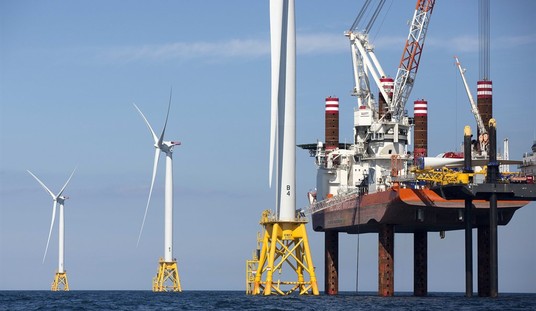Late last night, Moody’s hammered 15 of the world’s largest banks with ratings downgrades, including US firms like JP Morgan Chase, Citibank, and Bank of America. The best one can say about it is that it could have been worse, as the downgrades everyone knew were coming ended up being milder than some had predicted:
Ratings agency Moody’s downgraded 15 of the world’s biggest banks on Thursday, lowering credit ratings by one to three notches to reflect the risk of losses they face from volatile capital markets activities, but banks criticized the move as backward looking.
Morgan Stanley, one of the most closely watched firms in the much anticipated review, had its long-term debt rating lowered by just two notches, one level less than had been expected, sending its stock up sharply in after-hours trading.
The downgrade left Morgan Stanley more highly rated than Bank of America Corp and Citigroup, but a step below Goldman Sachs Group.
Credit Suisse, which last week was warned about weak capital levels by Switzerland’s central bank, was the only bank in the group to suffer a three-notch downgrade. But its new A1 deposit and senior debt ratings still rank higher than many of its peers.
“All of the banks affected by today’s actions have significant exposure to the volatility and risk of outsized losses inherent to capital markets activities,” Moody’s Global Banking Managing Director Greg Bauer said in the announcement.
Global markets dropped sharply overnight, but the real test will be what happens today. CNN analyst Christine Romans notes that markets have basically remained calm and that stocks in some of the banks rose, as investors had months to prepare for the Moody’s review of the banks, which started in February. In the long run, though, the lower rating will force banks to pay higher costs for lending and borrowing, which will make both more difficult while these largest banks try to strengthen their asset positions.
But that’s only a secondary worry, as Romans explains. The ratings change and the weak position of the banks reflect a weakening global economy that looks just about ready to tip over into another recession:
CNN’s web page refers to this as a “double-dip” recession (Romans does not), which I’m not sure is technically correct. We have had 12 straight quarters of GDP growth — anemic, sluggish, and in some cases nearly all artificial, but growth nonetheless. A new recession will be its own phenomenon at this point, brought on by bad economic policies in the US and in Europe. Better economic policies might not prevent it from happening at this point, as the data Romans notes shows, but better economic policies would make the next recovery a lot more successful than the worst one we’ve seen since World War II in 2009-present.








Join the conversation as a VIP Member